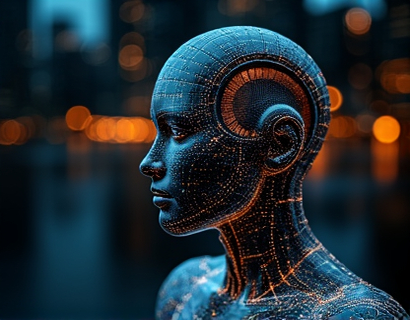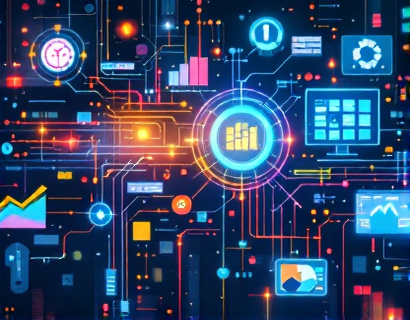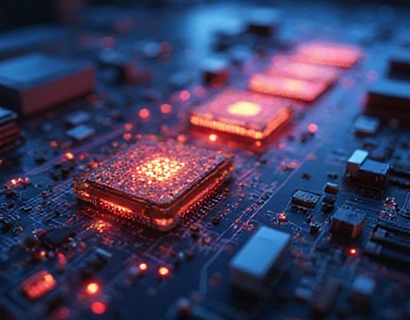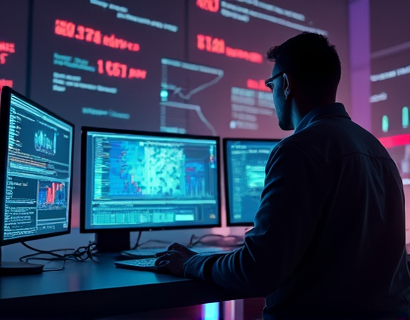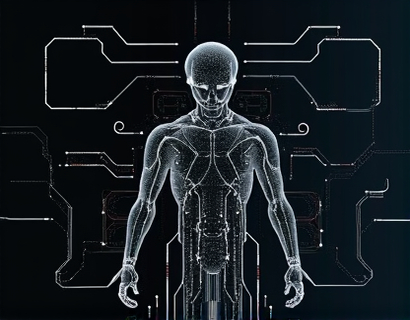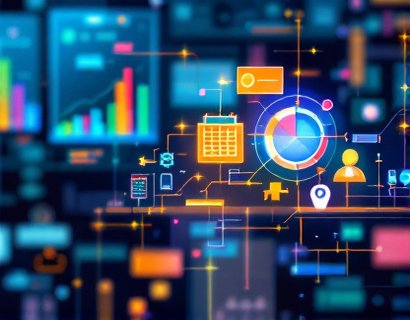Transforming Digital Experiences: The Synergy of AI and Crypto
The integration of Artificial Intelligence (AI) and cryptocurrency is revolutionizing the digital landscape, offering unprecedented opportunities for innovation, growth, and enhanced user engagement. This article delves into the transformative power of AI-driven insights and secure crypto solutions, highlighting how these cutting-edge technologies can provide a competitive edge for tech innovators and crypto enthusiasts. By exploring the synergy between AI and cryptocurrency, we aim to elevate digital experiences and stay ahead in the rapidly evolving tech realm.
Understanding AI and Crypto: A Brief Overview
Artificial Intelligence, a branch of computer science, focuses on creating systems that can perform tasks requiring human intelligence, such as learning, reasoning, and problem-solving. AI technologies include machine learning, natural language processing, and computer vision, which are increasingly being applied across various industries to automate processes, analyze data, and provide personalized experiences.
Cryptocurrency, on the other hand, is a digital or virtual currency that uses cryptography for security and operates on a decentralized network, typically a blockchain. Bitcoin, launched in 2009, was the first and most well-known cryptocurrency, but thousands of others, known as altcoins, have since emerged, each with unique features and use cases. Cryptocurrencies enable secure, transparent, and borderless transactions, challenging traditional financial systems.
The Intersection of AI and Crypto
The convergence of AI and cryptocurrency is creating a new paradigm in digital technology. AI can enhance the functionality and security of cryptocurrencies, while crypto can provide a decentralized and secure environment for AI applications. This synergy opens up numerous possibilities for transforming digital experiences.
AI-Driven Cryptocurrency Innovations
One of the most significant impacts of AI on cryptocurrency is in the realm of security. AI algorithms can detect and prevent fraudulent activities, such as money laundering and cyber attacks, by analyzing patterns and anomalies in transaction data. Smart contracts, self-executing contracts with the terms directly written into code, can be enhanced with AI to automate complex decision-making processes, ensuring greater reliability and efficiency.
AI also plays a crucial role in cryptocurrency trading and investment. Machine learning models can analyze vast amounts of market data to predict price movements, identify trends, and optimize trading strategies. This AI-driven approach to crypto trading can help investors make more informed decisions and potentially increase their returns.
Enhancing User Experience with AI and Crypto
The combination of AI and cryptocurrency can significantly enhance user experiences in digital platforms. For instance, AI-powered chatbots can provide 24/7 customer support, answering queries and assisting users with transactions in real-time. These chatbots can understand natural language, making interactions more intuitive and user-friendly.
Personalization is another area where AI and crypto intersect to improve user experiences. AI algorithms can analyze user behavior and preferences to offer tailored recommendations and services. In the context of cryptocurrency, this means providing users with customized investment portfolios, personalized wallet management, and relevant content based on their interests and activities.
Decentralized Finance (DeFi) and AI
Decentralized Finance (DeFi) is a rapidly growing sector that leverages blockchain technology to create financial systems without central intermediaries. AI can further enhance DeFi by optimizing lending, borrowing, and yield farming processes. AI-driven risk assessment models can evaluate creditworthiness more accurately, reducing the risk of defaults and improving the overall stability of DeFi platforms.
AI can also automate the management of decentralized applications (dApps), ensuring they operate efficiently and securely. By monitoring network conditions and user behavior, AI can dynamically adjust parameters to optimize performance and user experience. This level of automation and optimization is crucial for the widespread adoption of DeFi solutions.
Supply Chain and Logistics: AI and Crypto in Action
Beyond finance, the integration of AI and cryptocurrency is transforming supply chain and logistics. AI can optimize supply chain operations by predicting demand, managing inventory, and streamlining transportation routes. When combined with blockchain, these processes become even more transparent and secure. Cryptocurrencies can facilitate seamless and secure transactions between parties, reducing the need for intermediaries and lowering costs.
For example, AI can track the movement of goods in real-time, ensuring that each step of the supply chain is recorded on a blockchain. This not only enhances traceability but also builds trust among stakeholders. Smart contracts can automate payments when specific conditions are met, ensuring timely and accurate transactions.
Healthcare: A Sector Benefiting from AI and Crypto
The healthcare industry is another area where AI and cryptocurrency can make a significant impact. AI-powered diagnostic tools can analyze medical data to identify diseases more accurately and quickly than human practitioners. These tools can be deployed on blockchain-based platforms to ensure data privacy and security, as patient records are stored and shared securely across different healthcare providers.
Cryptocurrencies can facilitate secure and private transactions for healthcare services, such as payments for treatments and prescriptions. Blockchain-based identity verification systems can ensure that patients are who they claim to be, reducing fraud and improving access to healthcare services. AI-driven patient management systems can also optimize hospital operations, from scheduling appointments to managing resources.
Challenges and Considerations
While the potential of AI and cryptocurrency is vast, there are several challenges and considerations that must be addressed. Regulatory frameworks are still evolving, and the lack of clear guidelines can pose risks for innovators and users. Ensuring compliance with data protection laws, such as GDPR, is crucial when handling sensitive information.
Scalability is another challenge, especially for blockchain networks. As the number of transactions increases, blockchain can become slow and expensive. AI can help mitigate this by optimizing network performance and developing more efficient consensus mechanisms. However, continuous research and development are necessary to overcome these technical hurdles.
Future Prospects: The Next Generation of Digital Experiences
The future of digital experiences will be shaped by the continued integration of AI and cryptocurrency. As these technologies mature, we can expect more sophisticated and seamless applications across various industries. The synergy between AI and crypto will drive innovation, fostering new business models and enhancing user engagement.
For tech innovators and crypto enthusiasts, embracing this synergy is key to staying competitive. By leveraging AI-driven insights and secure crypto solutions, they can create digital projects that are not only cutting-edge but also resilient and user-centric. The next generation of digital experiences will be characterized by intelligence, security, and decentralization, paving the way for a more connected and empowered world.





